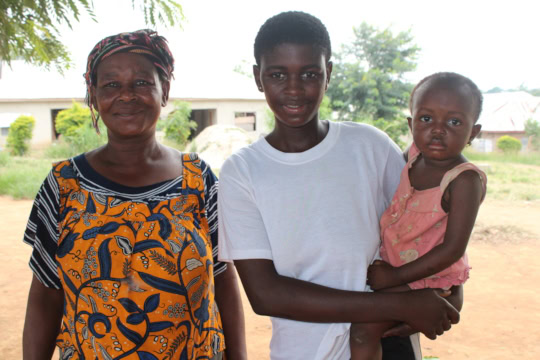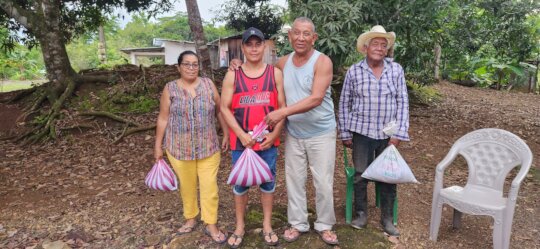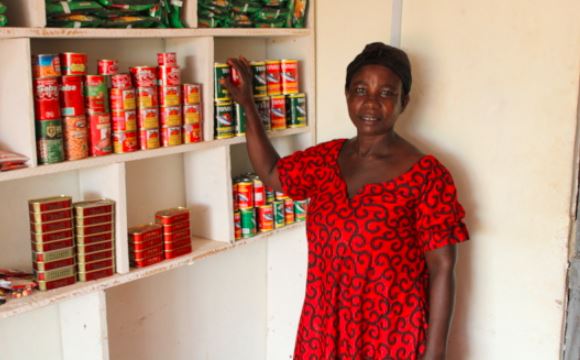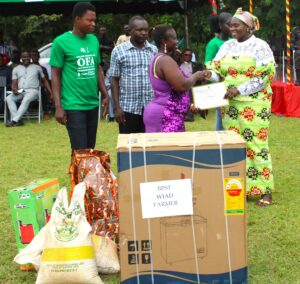Nutrition in the First 1000 Days: Implementing lessons learned from World Food Prize Laureates
Nutrition in the First 1000 Days
By Bernice Agyekwena, SHI Ghana Communications Manager

Mothers gathering in Beposo for a meeting
For their role in championing medical and economic policies that promotes maternal and child health, Dr. Lawrence Haddad and Dr. David Nabroo were awarded the World Food Prize in 2018. Using both food and economic research, Dr. Hadad convinced development leaders to prioritize child nutrition as part of the global food security agenda. Dr. Nabarro established the “Scaling Up Nutrition Movement” which jointly implemented evidence based policies and programs. These programs resulted in a vast improvement in the health of babies in the initial 1000 days of life, which covers the period from pregnancy to a child’s second birthday.
In a bid to replicate the activities of these two Laureates to reduce stunted growth among children in Ghana, where 25 percent of children are stunted as a result of malnutrition, Self-Help Ghana implemented the Growing Healthy Food Growing Healthy Children (GHFGHC) program. GHFGHC is carried out in two communities, Beposo and Kukuboso to reduce maternal and child malnutrition.
Beposo, in particular, is the most challenged of all the villages under SHI and has the greatest percentage of children experiencing malnutrition in the entire country. This in turn poses a threat to the socio-economic development of that community in particular and Ghana as a whole since “You can’t build a peaceful world on empty stomach and human misery.” Dr. Norman Borlaug.
Under the program, women undertake training activities that empower them with economic knowledge as well as knowledge on proper nutrition and how to source and process it. They are also given access to micro credit to undertake economic ventures to earn income.
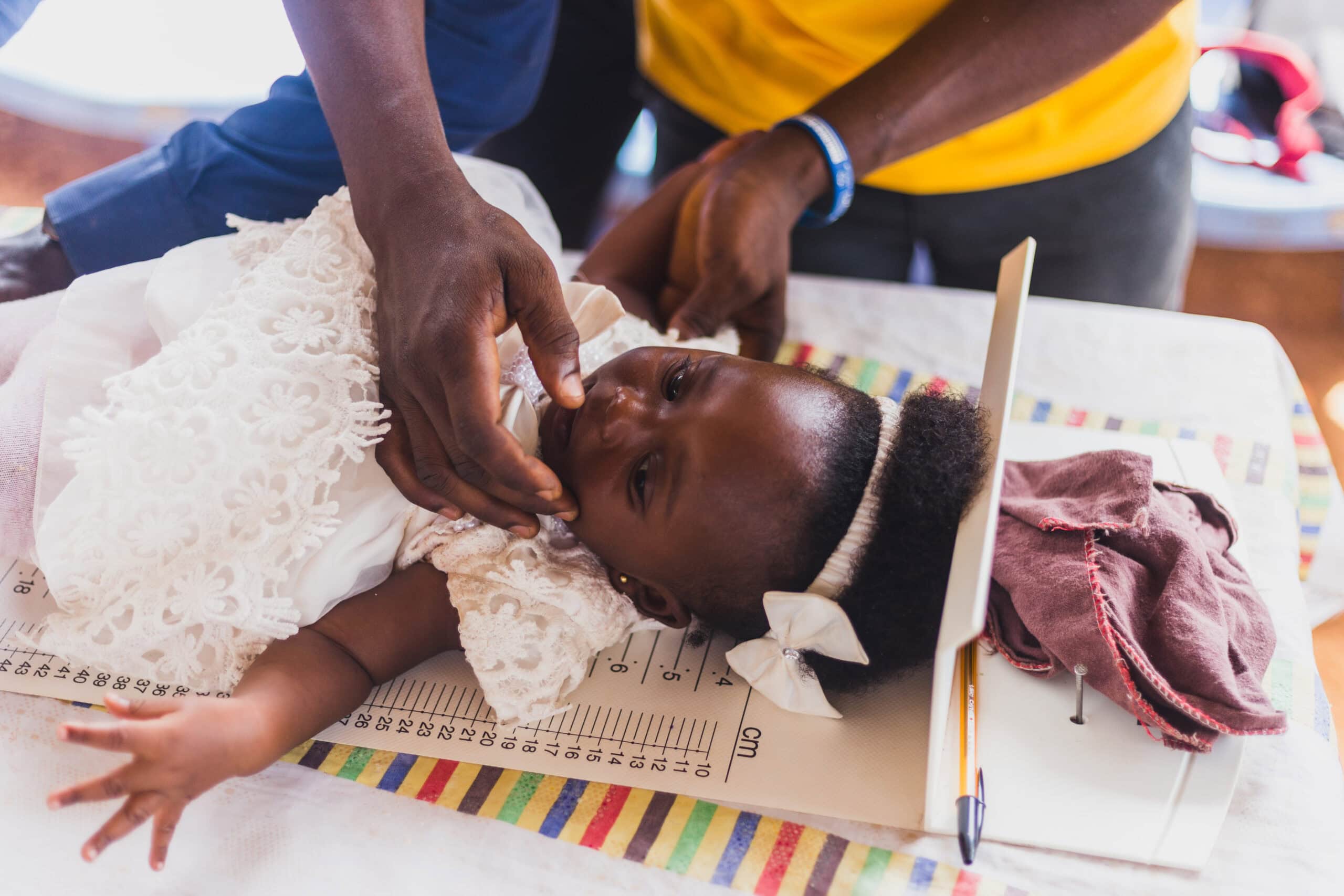
Taking measurements at Beposo group meeting
The nutrition team counsels women on the need for exclusive breastfeeding during the first six months of life. This includes training them on weaning techniques, nutrition, and providing them with knowledge on maternal and child health.
Women are taught how to replace low quality weaning foods such as corn dough porridge with high quality weaning food such as tom brown, which makes a big difference in the growth of the children. They learn to mash the hard egg yolk into the fortified grain porridge which is a mixture of corn and legume that provides protein, good fats, and minerals such as iron and zinc.
Then the SHI agricultural team kicks in with training sessions on how best to cultivate plants suitable for weaning babies such as Orange Fleshed Sweet Potatoes (OFSP) and also supplies them with the vines to cultivate them on their own. This is to introduce high quality beta carotene into the diets of both mothers and babies to prevent vitamin A deficiency. Cooking demonstrations are also carried out to teach the women how to prepare tasty meals that do not destroy food nutrients.
The SHI Micro-Credit team then supports the women with micro credit to start a business and also provides them with business training to enable them to transact their businesses effectively.
This represents a three-pronged holistic approach towards solving the problem of malnutrition by tackling it from an economic and agricultural viewpoint, as well as a nutritional and health knowledge angle.
Prior to the intervention of the GHFGHC Program, the people of Beposo believed it was normal for children born in the village to be born thin and small. This was due to the long standing issue of child malnutrition in the community for many years. This long held myth has now been broken amongst the inhabitants in the village since women under the program are giving birth to bigger and healthier babies who exhibit glossy and dark hair which is an indication of a well-nourished baby.
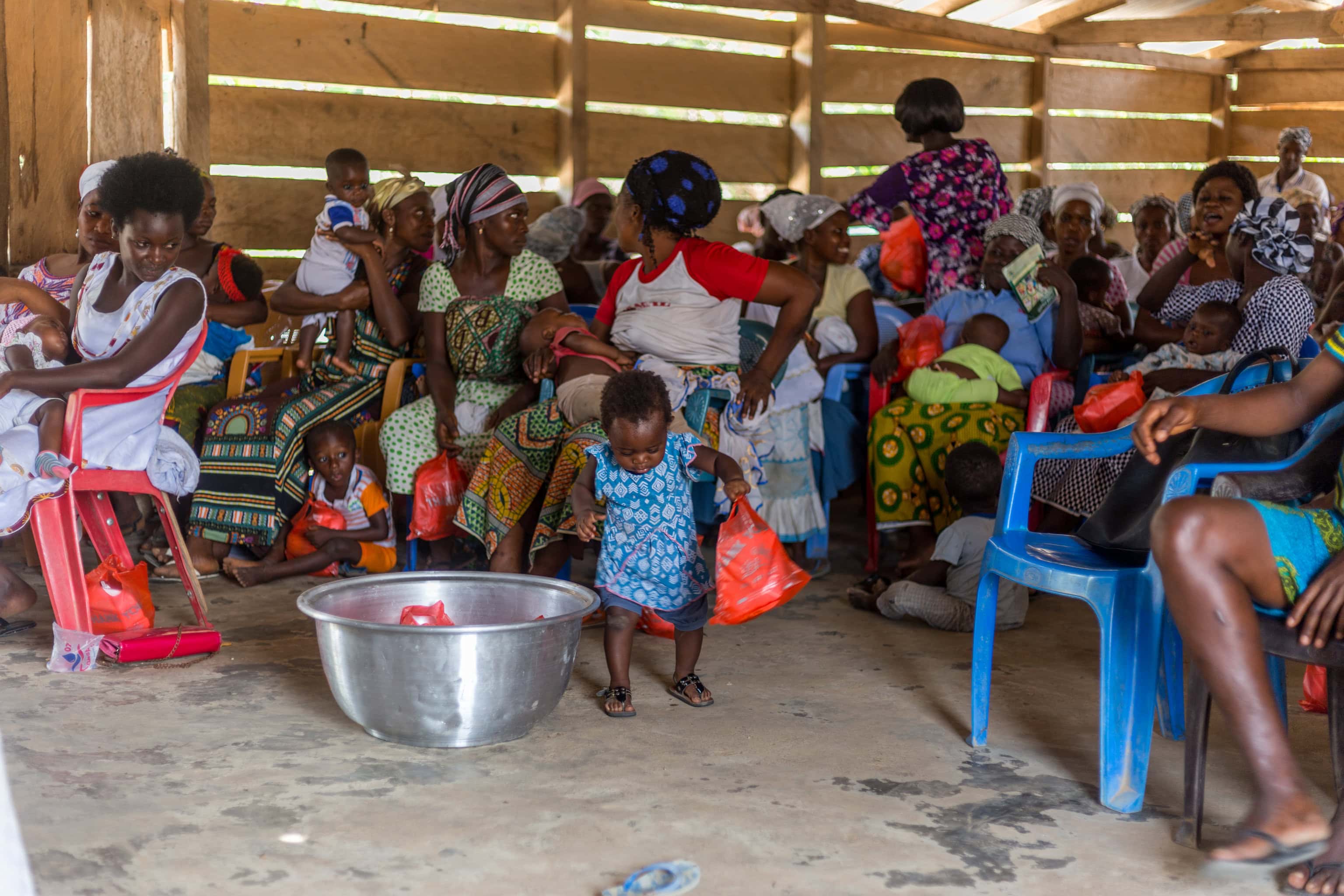
Felicia was one of the women who saw such positive changes in her children’s growth and appearance after participating in the program. At the time when the program started, her baby was two months old. Felicia had never been able to practice exclusive breastfeeding with her previous children. Following the training sessions on nutrition and health that she received from the GHFGHC program, she implemented what she had learned and was thus able to practice exclusive breastfeeding for the first time. As a result of the knowledge she had gained, she also went on to coach other women.
Due to the interventions by Self Help Ghana, there has been a rise in the number of lactating mothers practicing exclusive breastfeeding within the first six months of their baby’s life. More women are also now engaged in vegetable cultivation in a bid to provide more nutritious meals for their children with 80 out of the 134 mothers under the program possessing their own vegetable gardens.

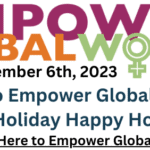 Next Post
Next Post